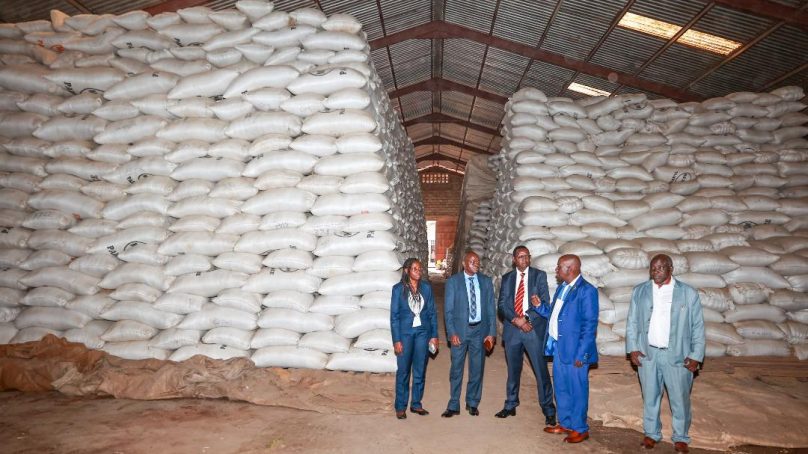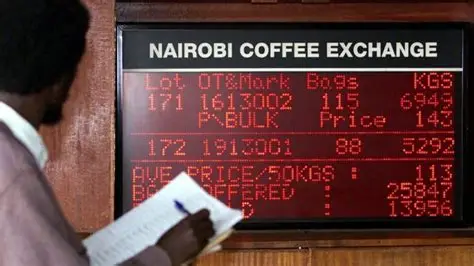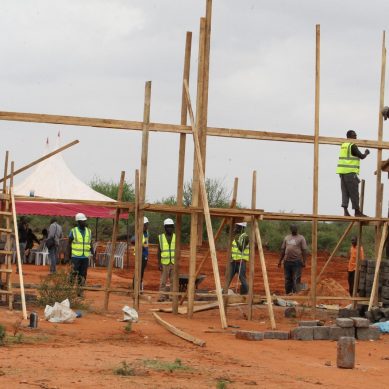
Kenya National Trading Corporation will buy all rice from farmers in Mwea Irrigation Scheme to create room for next season’s harvest, the government says.
The assurance comes on the back of fears by farmers that the government had already licensed rogue businessmen to import more than 500,000 tonnes to bridge a national deficit of over one million tonnes of rice.
KNTC estimates monthly demand for rice in Kenya to be 100,000 tonnes, which translates to 1.2 million tonnes per annum against a local annual production of about 200,000 tonnes.
The farmers had expressed fears that imported was going to create a glut that would in turn result in market price slide for the local produce. The farmers equally expressed frustration with branding of imported rice as premium Mwea rice, which they described as immoral and unfair market competition
Consequently, Cabinet Secretary for Ministry of Agriculture and Livestock Development Mutahi Kagwe dispatched a team from KNTC and Agriculture and Food Authority to address the concerns raised by rice farmers in Mwea Irrigation Scheme.
Bruno Linyiru, Director General of the Agriculture and Food Authority of Kenya, assured over 8,500 farmers that the rice that is available will be bought by KNTC and payment processed promptly. He denied allegations that imported rice is repackaged as Mwea rice once it lands in the Kenyan market and sold cheaply.
“What is produced in Mwea is niche market-oriented rice. That is very good quality, very aromatic and has a different market. Therefore, we came here to see what it is that we are holding and how we can make this work,” Linyiru said.
“As the regulator we have also acknowledged concerns raised by the society and we also know it could be true that there are few unscrupulous traders who repackage imported rice to make it look like the Basmati rice or the Pishori rice we have in Mwea,” he acknowledged.
Linyiru said Kenya produces 191,000 metric tonnes of milled rice annually, which can only last for two months because the monthly requirement is about 100,000 metric tonnes. He reiterated that since January, only 94,000 metric tonnes of rice has been imported, hence the need to increase local production to reduce reliance on imports.
“Under the BETA plan the government intends to reduce imports from 80 to 50 per cent. Already in the year 2024 our production has increased up to 90,000 metric tonnes. This is quite a huge increase. So we expect that by 2027 we will have reduced this to 50 per cent.”
KNTC Managing Director Lucy Anagwe encouraged farmers to increase production and assured them of ready a market.
“We pick up this rice and market it to government institutions. We will also ensure timely payment to farmers,” Anagwe promised.
Mwea Rice Growers Manager Anthony Waweru confirmed the promise by the government through KNTC to purchase the rice in store within 30 days.
“I can confirm from our discussions that they have promised that within a month they would have mopped up all what we have and payments shall be done within 30 days without delay,” Waweru said.
He thanked the government for supporting farmers and more so by availing the subsidized fertilizers.
- A Tell Media / KNA report / By Mutai Kipngetich
Officials from Ministry of Agriculture inside one of the rice stores in Mwea, Kirinyaga County.
Bruno Linyiru, Director General of the Agriculture and Food Authority (AFA) of Kenya speaking in Mwea after meeting rice farmers’ officials.
Farmer preparing rice farm in the Mwea irrigation scheme.







